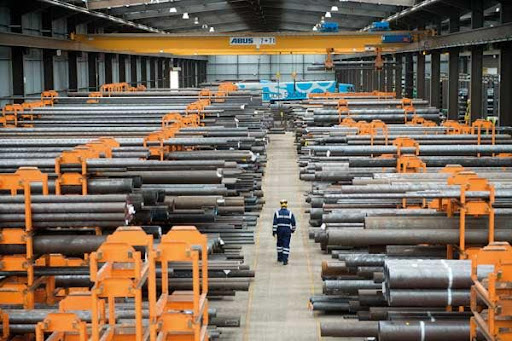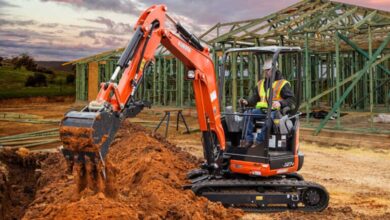Steel Stockholders: The Backbone of the UK’s Steel Supply Chain

Steel is everywhere—bridges, skypools, and even the tiniest crank. Yet few people outside the industry think about how this vital material reaches construction sites, factories, and workshops across the UK. It is up to the steel stockholders.
The significant relationship between steel manufacturers and steel end-users is the stockholders. They are instrumental in the steady supply of steel products, which are essential to several industries. So, what do steel stockholders actually do, and why is it so critical?
What Are Steel Stockholders?
Discussed in a nutshell, steel stockholders are firms that purchase a bulk of the steel in the mills and store it under stock, which is ready to be allocated to customers in different forms. There are raw materials such as beams and sheets, and there are processed products cut and finished to the requirements of the customer.
Stockholders do not produce steel as the manufacturers do. They are rather a hub of the supply chain between the production of steel all across the world and the domestic market. They do warehousing, processing and logistics so that their customers acquire the steel as soon as they need and in the desired form.
Why Are Steel Stockholders So Important?
There exist various reasons why steel stockholders are important. To start with, they render steel available in small quantities. All builders or fabricators do not have to place orders of several tonnes of steel to a mill. Stockholders allow the business to order steel in small quantities, a single beam or an entire lorry-load.
Second, they will stabilise supply. The steel market has a tendency to experience price and supply changes in the global market. This volatility is dealt with by the stockholders because they hold local inventories such that abrupt disruption in shortages or price increases at the production stage does not affect the projects of their customers instantly.
In addition to this, the stockholders, in most cases, provide processing services. These services comprise cutting, drilling, profiling, and finishing, which enables the customers to get steel in a form that they can use without wasting time and resources on their part.
What Types of Steel Do Stockholders Provide?
The variety of steel products held by stockholders is vast. Typical stock includes:
- Structural steel (beams, columns, channels)
- Steel plates and sheets
- Reinforcement bars (rebar)
- Hollow sections (SHS, RHS, CHS)
- Stainless steel products
- Bright bars and engineering steel
- Steel tubes and pipes
Not all stockholders will be able to provide the wide range of items as others are being specialised in the specific sector, like the construction industry, the auto industry or precision engineering.
Stockholders vs. Steel Suppliers — What’s the Difference?
Although the two terms are applied interchangeably, there exists a marginal difference. Steel suppliers could receive the supply and sell steel products without the need of having a lot of physical stock. They may perform their roles like agents or brokers through which they execute the orders either by buying directly in mills or through third parties.
But stockholders keep the steel in physical storage in warehouses and yards. They carry inventories in advance of what customers may buy so that quicker turnaround is achieved and flexibility rises. In the UK, many stockholders also act as suppliers, combining stockholding with distribution services.
The Role of Steel Stockholders in the UK Industry:
In the UK, stockholders serve as the backbone of sectors such as:
- Construction: Provision of buildings, bridges and infrastructure steel.
- Manufacturing: Supplying of materials to the machines, tools and automobile components.
- Energy: Provision of specialised steel items in pipelines, turbines and support systems.
- Engineering Fabrication: We provide cut-to-size or pre-fabricated components that are ready to assemble.
Without stockholders, projects would face longer lead times, increased costs, and greater supply chain complexity.
Choosing the Right Steel Stockholder:
For businesses needing steel, selecting a stockholder isn’t just about finding the lowest price. Several factors make a real difference:
- Stock Range: Does the stockholder carry the type, grade, and size of steel you require?
- Processing Capabilities: Can they cut, drill, or finish steel to your specifications?
- Delivery Network: Do they cover your location with reliable and timely delivery?
- Certifications and Standards: Are their products compliant with BS EN standards and accompanied by certification?
- Customer Support: Do they offer technical advice and responsive service?
A reputable stockholder will help you not only secure material but also ensure it’s fit for purpose.
Conclusion:
Steel stockholders are much more than metal lured into a warehouse. They are the unrecognised heroes who put the UK in a sufficient position to get its steel demands processed efficiently and competently. Stockholders are the backbone of the supply system, and whether the business is a small fabrication shop or a big construction project, the stockholders dictate the motion of the supply chain.



